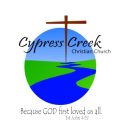ECCLESIOLOGICAL ETCHINGS
September 25, 2025
Henry David Thoreau wrote, “The most I can do for my friend is simply be his friend.” Those words have been rattling around inside of me for a few weeks. I’m not sure if I’d use them in my sermon this week or not. Yet I find myself agreeing with the words and then adding a caveat, a reason to sort of disagree. Then a day later, I toss out the caveat and sit with Thoreau’s words. You see, I am bothered by all the things I am supposed to do as a friend, everything that supposedly defines a good friend, and all the expectations that culture places upon the concept of friend. But what if Thoreau is right? And what if we struggle in the same way we struggle with the notion of God’s grace? So often when people hear the phrase, “God loves you unconditionally,” the response is, “Yes, but…” They are not quite ready to accept it as a true gift with no strings attached. In part because people have too often encountered conditional love. “I will love you, but first you must…”And I sort of wonder if people’s definition of friendship has become skewed by experiences of conditional friendship. “You can be my friend if…” Maybe those exact words are not said, but it is implied. In the end, a person is always trying to earn the status of friend, when it simply should be a given. God’s love is a given, yet too often we treat it otherwise.
We have a friend in you, O Lord. You are a friend who teaches us about unconditional love, a relationship that doesn’t impose expectations or rules. Instead, you allow the joy and power of the relationship to shape us into the people you believe we can be. Amen.
